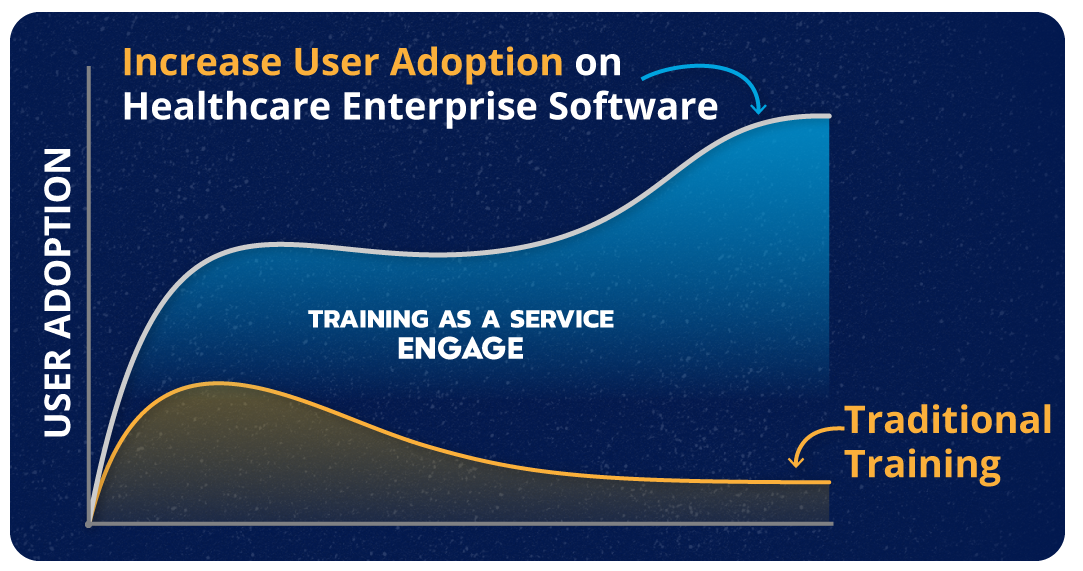Innovating for Healthcare: Enterprise Software's Role in Enhancing Efficiency and Patient Outcomes.
The healthcare industry grapples with increasing regulatory complexity, data security concerns, and workforce shortages, all while striving to provide equitable access to care. Learn how enterprise systems are pivotal in managing patient records, medical supply chains, and billing, while also enabling opportunities like telehealth and predictive analytics.
Expanding Telehealth Services and Remote Patient Monitoring for Enhanced Access
Telehealth and remote patient monitoring offer immense opportunities to improve access to care, manage chronic conditions, and enhance patient convenience. Successfully scaling these services requires clinicians and staff to be proficient with virtual care platforms integrated within ERP systems for scheduling, billing, and documentation. Digital training can equip them with the necessary technical skills and virtual bedside manner. Digital adoption platforms ensure these tools are seamlessly integrated into care pathways by providing real-time, in-app guidance within ERP interfaces, helping staff navigate complex billing codes, appointment scheduling workflows, and documentation requirements at the point of need.
Ensuring Robust Patient Data Security and Strict HIPAA Compliance
Protecting sensitive patient health information (PHI) and ensuring compliance with regulations like HIPAA is a critical and ongoing challenge in healthcare, especially with rising cyber threats. Healthcare organizations rely heavily on enterprise resource planning (ERP) systems to manage patient data, financial records, and operational workflows, making proper system training essential for maintaining security and compliance. Staff must understand how to correctly access, input, and manage PHI within these complex enterprise platforms according to established organizational procedures. Digital adoption platforms (DAPs) provide contextual, in-app guidance directly within ERP interfaces, ensuring staff follow proper data handling protocols, utilize appropriate access controls, and maintain audit trails that support regulatory requirements—all without leaving their workflow.
Achieving Seamless Interoperability Between Disparate Health IT Systems
The lack of interoperability between different Electronic Health Record (EHR) systems and enterprise platforms remains a major challenge, hindering data sharing, care coordination, and patient safety. Achieving true interoperability requires technical solutions and skilled personnel who can navigate complex ERP integrations. Digital training can help IT staff and clinicians understand data standards and how to use integrated systems effectively. Digital adoption platforms play a crucial role by providing in-app guidance directly within ERP interfaces, helping users understand data mapping, workflow processes, and integration points in real-time, breaking down data silos through better system utilization.
Mitigating Healthcare Workforce Burnout and Addressing Staff Shortages
Healthcare professionals face high levels of burnout, exacerbated by workforce shortages and administrative burdens, often linked to inefficient ERP system usage and complex workflows. Intuitive, well-designed enterprise tools can help, but only if staff are comfortable using them effectively. Digital training focused on efficient use of ERP systems and clinical platforms can reduce frustration and administrative overhead. Digital adoption platforms provide immediate, contextual support through in-app guidance, tooltips, and step-by-step walkthroughs directly within ERP interfaces, helping staff complete tasks efficiently while reducing technology-related stress and improving job satisfaction.
Enhancing Transparency and Efficiency in the Healthcare Supply Chain
Managing the healthcare supply chain for medical supplies, pharmaceuticals, and equipment through ERP systems is complex and critical for patient care and cost control. Lack of visibility and inefficiencies within enterprise platforms can lead to shortages or waste. Digital training on modern supply chain management modules, inventory control features, and analytics dashboards can improve operations. Digital adoption platforms enhance this by providing in-app guidance directly within ERP supply chain interfaces, offering contextual help for procurement workflows, inventory tracking, and analytics interpretation at the point of need, ultimately enhancing supply chain resilience and reducing costs.
Overcome Digital Transformation Challenges with Maverick
Enhance Patient Care While Strengthening Operational Resilience
Empower your healthcare organization to deliver exceptional patient outcomes while maintaining robust operational performance. Our platform ensures your teams can effectively navigate complex regulatory requirements, optimize critical resources, maximize staff efficiency, and adapt quickly to industry changes—all while maintaining the highest standards of patient safety and care quality.
Optimizing Training for a Large Healthcare Client
A healthcare organization, made up of over 35,000 employees, was searching for the missing piece of their overall training solution when they found Maverick.
Realizing that they had a lack of formal training, this organization’s goal was to provide their employees with high-quality training before going live with Oracle Cloud Enterprise Resource Planning (ERP). They already had a plan in place for vetting out training companies and knew what they needed. That’s when they partnered with Maverick, whose expertise in Cloud ERP training transformed their team into confident, capable users, ensuring a smooth and successful go-live.

